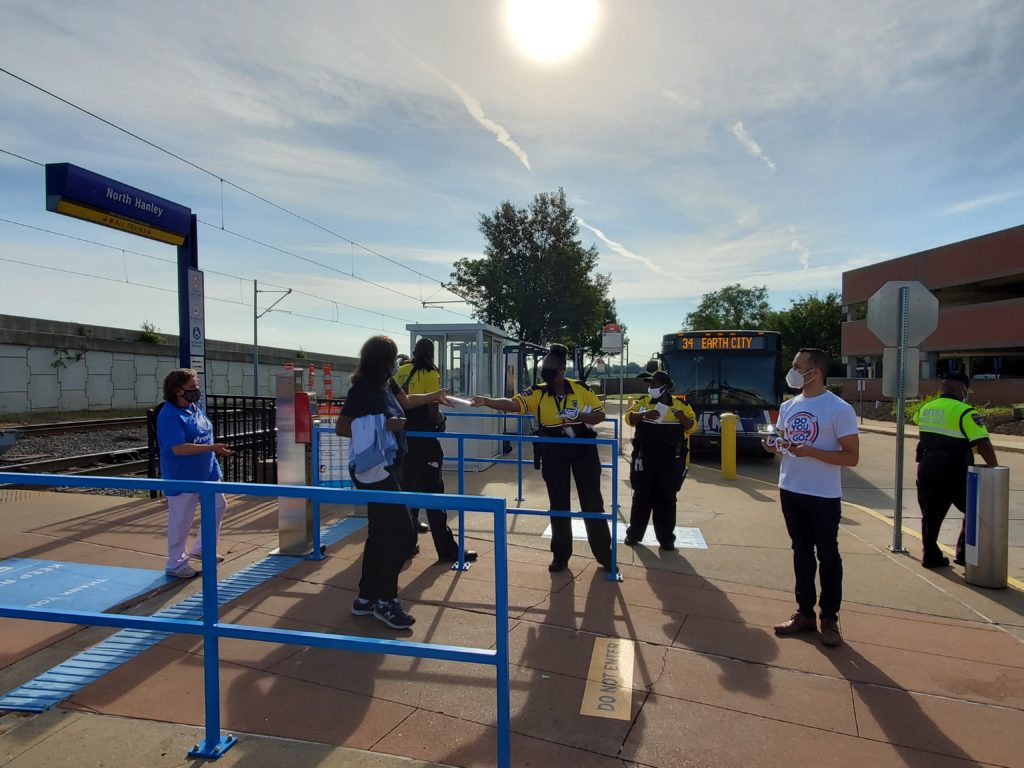Metro Transit’s Public Safety Team has a new tool. Since July 20, all uniformed and field-deployed Metro Transit Security Specialists (TSS) have been equipped with Body Worn Cameras (BWC). The cameras are now being worn during each shift on the transit system for scene documentation, as well to ensure transparency and accountability to the public when addressing security issues. TSS personnel are Metro Transit employees who work in conjunction with G4S contracted security guards while riding on the MetroLink trains, checking the platforms, responding to calls and coordinating with local law enforcement partners.
“In our current world, documentation and accountability are absolutely paramount,” said Kevin Scott, General Manager of Field Security at Metro Transit. “We’re seeing body cameras being used more and more in the public safety industry, and it is important that Metro Transit provides this type of technology to bolster our overall security effort. The priority of our public safety model is to provide a safe and secure experience for our riders, and tools like these cameras support those efforts.”
An important benefit is the cameras provide a more thorough documentation of customer contacts, as well as special incidents that require a TSS response. Local law enforcement partners will also have access to the camera footage when conducting their investigations relating to crimes occurring on the Metro Transit system. This technology will supplement Metro Transit’s broader closed-circuit television (CCTV) system, which deploys fixed cameras on all platforms and properties across the system. Those cameras are monitored 24/7 by Metro Public Safety dispatchers who can immediately call for security or law enforcement assistance when needed.
In February, Metro Transit approved a systematic framework of effective and sustainable security components to safeguard the personal security of passengers, employees and members of the public, as well as the integrity of Metro assets and other property. This agreement was the culmination of two years of work and collaboration between Metro Transit, Bi-State Development, East-West Gateway Council of Governments, WSP, St. Louis County, City of St. Louis, St. Clair County and Metro’s law enforcement partners at the St. Louis County Police Department, St. Clair County Sheriff’s Department and the Metropolitan St. Louis Police Department.
